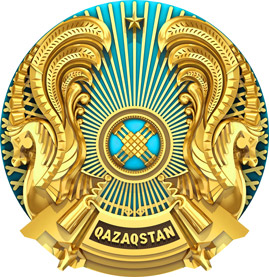US Relations | Economic Cooperation
Energy Partnership
The United States pays great attention to energy cooperation and has supported Kazakhstan in its efforts to increase its role in ensuring global energy security. The Energy Partnership Commission that was established in 2003, plays an important role in coordinating energy cooperation between the countries.
In 2017, the United States and Kazakhstan elevated their bilateral energy partnership to the level of the Strategic Energy Dialogue. This expanded format provides the basis for cooperation in the development of peaceful nuclear industry, technologies for carbon capture, storage and utilization, stability of energy networks, as well as nuclear safety and non-proliferation.
In January 2018, President Nursultan Nazarbayev met with US Energy Secretary Rick Perry and State Agency for Foreign Private Investment President Ray Washburn during his official visit to the US. The sides discussed Kazakhstan-US cooperation in the oil and gas sector and spoke about the implementation of projects at the Tengiz and Kashagan oilfields. President Nazarbayev also told Secretary Perry about the opening of the Low-Enriched Uranium Bank in Kazakhstan.
At the 10th Annual Meeting of the Commission in 2014 the countries agreed to continue promoting cooperation in four broad areas- nuclear security, hydrocarbon resources, renewable energy and energy efficiency, and electric power. In the context of Kazakhstan’s plan to transition towards Green Economy, the countries have established a permanent expert dialogue and advanced implementation of renewable energy, energy efficiency, and clean energy projects.
The US has actively promoted diversification of pipeline export-routes in the Caspian Sea region, in order to increase the energy security of consumers in Europe and the Middle East and to diversify the market opportunities for Kazakhstani exporters. With American support, Kazakhstan signed an agreement with Azerbaijan in June 2006 to transport oil through the Baku-Tbilisi-Ceyhan (BTC) pipeline. For Kazakhstan, this agreement was necessary to safeguard its export markets due to Russia’s refusal to increase the transportation capacity of the Caspian Pipeline Consortium (CPC) and the BTC’s capacity to handle increased production.
Since 2006 Kazakhstan has been co-funding programs under USAID’s Economic Development Program jointly with USAID, demonstrating country’s interest in USAID’s expertise and support in developing small and medium enterprises, economic reforms, and regional trade. For the year 2014, programs targeting development of small businesses, foreign investment attraction and energy efficiency increase were allocated around $4.1 million. Kazakhstan received approximately $2 billion of all-agency funding from the US between 1993 and 2012.
President Nursultan Nazarbayev met with US Energy Secretary Rick Perry and State Agency for Foreign Private Investment President Ray Washburn on January 16, 2018 during his official visit to the US. The sides discussed Kazakhstan-US cooperation in the oil and gas sector and spoke about the implementation of projects at the Tengiz and Kashagan oilfields. President Nazarbayev also told Perry about the opening of the Low-Enriched Uranium Bank in Kazakhstan.


